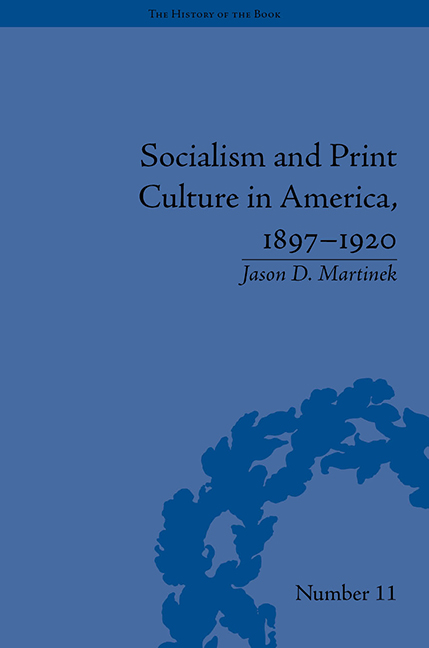Book contents
- Frontmatter
- CONTENTS
- List of Figures and Tables
- Acknowledgements
- Introduction: ‘Workers of the World, Read!’
- 1 ‘The Workingman's Bible’ and the Making of American Socialism
- 2 Charles H. Kerr & Company and the Americanization of Marxian Socialism
- 3 Activist Readers and American Socialists' Print Culture of Dissent
- 4 How the Socialist Party Created a Print Culture of Dissent without a Party-Owned Press
- 5 Information Management and the Socialist Party's Information Department and Research Bureau
- 6 Annotations on the Failure of Socialism in America
- 7 Conclusion: What a Book Cannot Do
- Notes
- Works Cited
- Index
1 - ‘The Workingman's Bible’ and the Making of American Socialism
- Frontmatter
- CONTENTS
- List of Figures and Tables
- Acknowledgements
- Introduction: ‘Workers of the World, Read!’
- 1 ‘The Workingman's Bible’ and the Making of American Socialism
- 2 Charles H. Kerr & Company and the Americanization of Marxian Socialism
- 3 Activist Readers and American Socialists' Print Culture of Dissent
- 4 How the Socialist Party Created a Print Culture of Dissent without a Party-Owned Press
- 5 Information Management and the Socialist Party's Information Department and Research Bureau
- 6 Annotations on the Failure of Socialism in America
- 7 Conclusion: What a Book Cannot Do
- Notes
- Works Cited
- Index
Summary
Age has made the booklet fragile. The red cover flakes away a little more at each handling. The newsprint has yellowed, hydrochloric acid slowly eating away the paper to nothingness. The book was never meant to last 100 years. It is about the size and shape of a dime novel – those penny dreadfuls that told exhilarating stories of murder, mayhem and adventure – but lacks the spectacular iconographic image of an especially climactic scene that no doubt tantalized prospective readers. Yet, despite its unostentatious cover, this one, too, works to draw in them. Especially eye-catching is the cover's footer: ‘1,000,000 Copies Have Been Sold’. That was quite a boast, considering that publisher Houghton Mifflin ultimately sold only half that number of Edward Bellamy's Looking Backward. The book's current decrepitude belies its significance. At one time, it, and hundreds of thousands like it, stoked the flames of discontent (see Figure 1.1). What was this book that purportedly trumped Looking Backward as a best-seller? It was British writer Robert Blatchford's Merrie England: A Plain Exposition of Socialism, whose first American edition appeared in 1895.
Appeal to Reason editor J. A. Wayland underscored the book's significance to the turn-of-the-twentieth-century socialist movement when he dubbed it the ‘workingman's bible’. Despite its vaunted place within the movement, the book has been forgotten. The Socialist Party's leading historians – Howard H. Quint, Ira Kipnis, David A. Shannon and Paul Buhle – make no reference to it. Nor have American literary historians given Blatchford his just due.
- Type
- Chapter
- Information
- Socialism and Print Culture in America, 1897–1920 , pp. 11 - 32Publisher: Pickering & ChattoFirst published in: 2014



